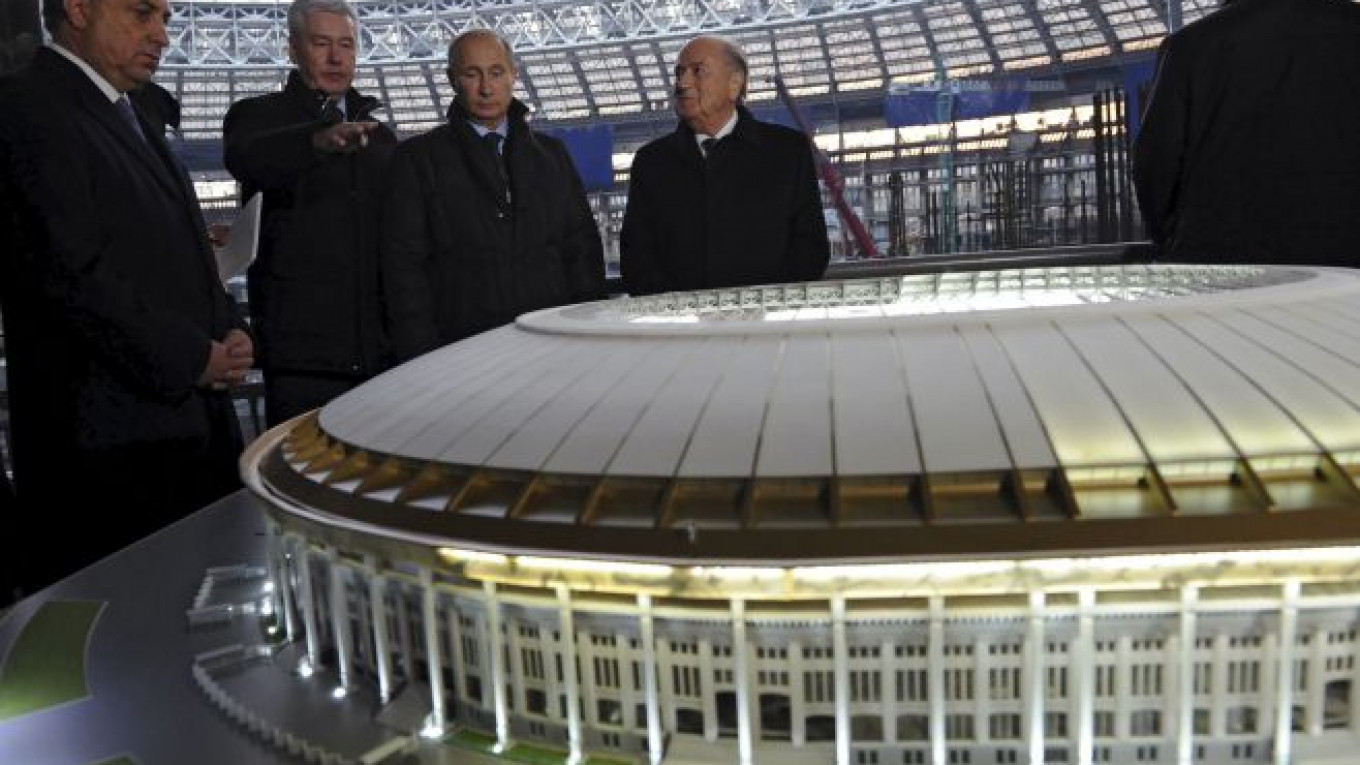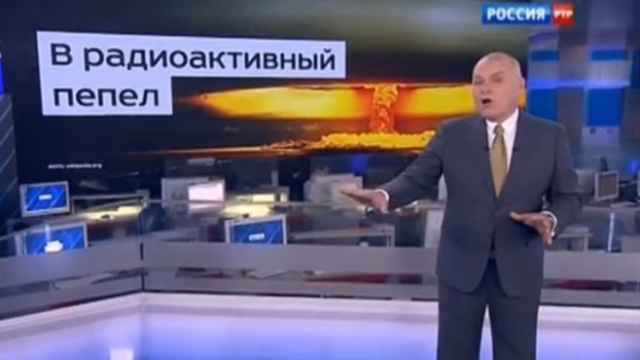President Vladimir Putin's impassioned defense of FIFA and its once-defiant leader is a reminder of the strong link between autocrats and high-level international sports. Since the FIFA story broke, the Kremlin has sought to portray this episode as an example of U.S. overreach. Putin has invoked the principles of "sovereignty" and "non-interference" in the face of the initiative to arrest and extradite corrupt FIFA officials, arguing that such moves are "another blatant attempt by the United States to extend its jurisdiction to other states."
But a far more persuasive explanation for Putin's vocal defense of the indefensible FIFA is that the Russian regime — and other autocratic ones like it — have come to rely heavily on lucrative international sporting events as important engines for "grand patronage."
Billions of dollars are at stake in international football, as well as other high-profile sporting events, such as the Olympic Games and Grand Prix motor racing. Democratic countries no longer see the allure of sports mega-events; authoritarian regimes, meanwhile, compete fiercely for the right to host them.
So what compels the governments of Russia, China, Azerbaijan, and others to seek the burden of hosting these events?
First, international sporting events help autocrats legitimatize their rule to their domestic audiences. They enable regimes that do not possess a democratic mandate to showcase their prowess at home in organizing "world class" events. Ordinary people can feel pride in their country's athletic achievements.
Second, these lucrative events serve as a "golden goose" that provides cover for transferring enormous state wealth to groups that the leadership must keep in its camp in order to remain in power. Beijing's bid for the 2008 Summer Olympics was slightly more than $3 billion; in the end, China spent $40 billion on the Games. Last year, the Sochi Olympics cost a total of $50 billion — an astonishing sum that outstripped any of the previous Olympic Games.
At a time when Russia's economy was showing signs of stagnation, Putin was able to funnel vast resources to cronies who benefitted from this Olympic-sized patronage lifeline, chiefly by obtaining lucrative construction contracts. Preparations for Russia's 2018 World Cup are no more transparent, although funding is now constrained by low oil prices, Russia's war effort in Ukraine and Western sanctions.
A third aspect of the autocrats' international sports racket is its benefit to these regimes' security services. The security establishment is keen to ramp up spending on new surveillance capacity and the repressive machinery that is integral to closed systems in such countries as Russia and China.
In the age of terrorism, security is on the minds of all governments that host mega-events, but authoritarian regimes use these security-related resources with "dual purpose" goals that are just as likely to be devoted to political repression.
In the realm of international sports, the issues of corruption and repression are so relevant because there is no end in sight to well-resourced autocratic regimes hosting such events.
Later this month, Azerbaijan — with a regime that has been described as repressive and corrupt — will welcome athletes and fans to the first-ever "European Games" in Baku. Qatar is slated to host the 2022 World Cup. Kazakhstan and China are the only remaining bidders for the 2022 Winter Olympics. Russia has been granted the right to host the 2018 World Cup.
Autocratic regimes and the organizing bodies of mega sporting events have become deeply and unhealthily intertwined.
To a large extent, the ball is now in the court of the established democracies, which must decide whether they will invest the needed effort to restore the integrity to the management of international football, the Olympic Games and other such high-level sports events.
The ignominious arrest of corrupt FIFA officials sends a clear signal to crooked leaders everywhere.
With the news of FIFA president Sepp Blatter's resignation and the strong likelihood that far more extensive details of FIFA's venality will emerge through the continuing investigation, it no wonder that Putin is complaining so bitterly.
Christopher Walker is executive director of the International Forum for Democratic Studies at the National Endowment for Democracy. Robert Orttung is assistant director of the Institute for European, Russian and Eurasian Studies at the George Washington University's Elliott School for International Affairs.
A Message from The Moscow Times:
Dear readers,
We are facing unprecedented challenges. Russia's Prosecutor General's Office has designated The Moscow Times as an "undesirable" organization, criminalizing our work and putting our staff at risk of prosecution. This follows our earlier unjust labeling as a "foreign agent."
These actions are direct attempts to silence independent journalism in Russia. The authorities claim our work "discredits the decisions of the Russian leadership." We see things differently: we strive to provide accurate, unbiased reporting on Russia.
We, the journalists of The Moscow Times, refuse to be silenced. But to continue our work, we need your help.
Your support, no matter how small, makes a world of difference. If you can, please support us monthly starting from just $2. It's quick to set up, and every contribution makes a significant impact.
By supporting The Moscow Times, you're defending open, independent journalism in the face of repression. Thank you for standing with us.
Remind me later.






